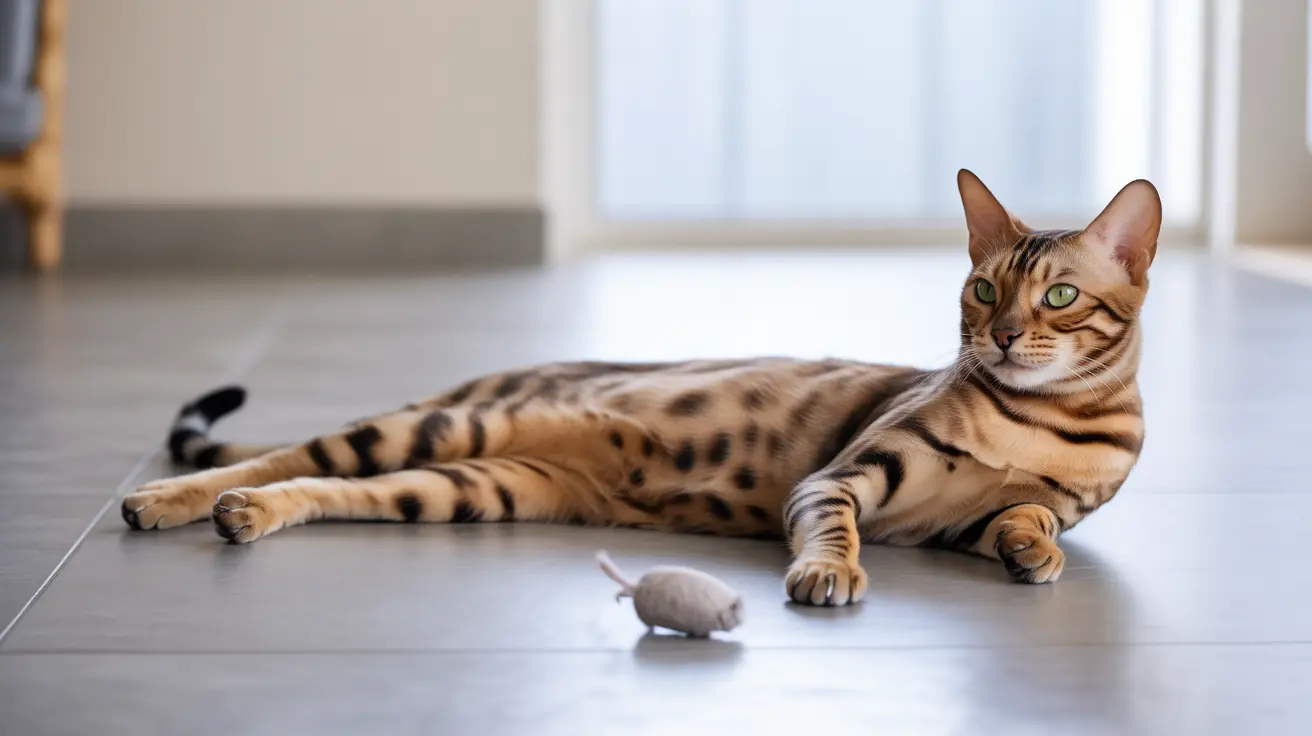Temperature Regulation and Comfort
One of the most common reasons cats suddenly switch to sleeping on the floor is temperature control. During warmer months, cats naturally seek out cool surfaces like tile, hardwood, or laminate flooring to help regulate their body temperature. This behavior is particularly noticeable during seasonal changes or if your home's temperature has recently fluctuated.
Conversely, cats might choose specific spots on the floor that receive direct sunlight during cooler weather, creating their own warm, comfortable spaces. This natural heat-seeking behavior helps them maintain optimal body temperature throughout changing seasons.
Environmental Changes and Safety
Cats are incredibly sensitive to changes in their environment. New furniture arrangements, home renovations, or shifts in household dynamics can prompt them to seek new resting places. The floor often provides a stable, predictable space where they can observe their surroundings while feeling secure.
Additionally, floors offer excellent vantage points for monitoring household activities and potential threats, satisfying their natural instinct to remain vigilant even while resting. This strategic positioning allows them to quickly respond to any changes in their environment.
Health and Physical Comfort Considerations
Sometimes, cats choose to sleep on hard surfaces due to physical discomfort or health issues. Older cats or those with joint problems might find firm floors more comfortable than soft beds. The solid surface can provide better support and make it easier for them to get up and down.
If your cat's new floor-sleeping habit is accompanied by other behavioral changes, such as decreased activity, difficulty moving, or obvious signs of discomfort, it's important to consult with your veterinarian to rule out potential health concerns.
Social Interaction and Attention-Seeking
Cats often choose sleeping spots that maximize their chances of social interaction. By positioning themselves in high-traffic areas or the center of rooms, they ensure they won't miss out on family activities or potential attention from their human companions.
This behavior might become more pronounced if there have been recent changes in your household routine or if your cat is feeling the need for more attention and engagement from family members.
Frequently Asked Questions
Why has my cat suddenly started sleeping on the floor instead of their usual bed?
Cats may switch to sleeping on the floor due to temperature changes, environmental shifts, physical comfort needs, or a desire for more social interaction. This behavior is often normal and reflects their natural instinct to adapt to changing conditions.
Could my cat sleeping on the cool floor be a sign of illness or discomfort?
While floor-sleeping is usually normal, if accompanied by other changes in behavior, mobility issues, or signs of pain, it could indicate an underlying health problem that requires veterinary attention.
How does temperature affect where my cat chooses to sleep?
Cats naturally seek cool surfaces during warm weather and warm spots during cold weather. Floor surfaces like tile or hardwood provide excellent temperature regulation options for your cat's comfort.
Is my cat sleeping in the middle of the room trying to get my attention?
Yes, cats often choose central locations to maintain social connections and ensure they don't miss out on family activities. This positioning allows them to monitor their environment while staying involved in household happenings.
When should I worry about changes in my cat's sleeping spots and seek veterinary advice?
Consult a veterinarian if your cat's new sleeping habits are accompanied by signs of pain, decreased mobility, changes in appetite or behavior, or other unusual symptoms. These could indicate underlying health issues requiring professional assessment.
Conclusion
While a cat suddenly sleeping on the floor might seem unusual, it's often a natural response to environmental, physical, or social factors. By understanding these motivations, you can better support your cat's comfort and well-being. However, always monitor for additional behavioral changes and consult with your veterinarian if you have concerns about your cat's health or comfort.






